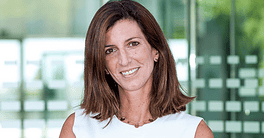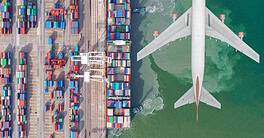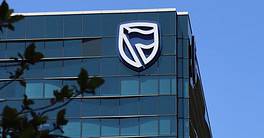Global Finance unveils its annual list of the best global banks. The winners of our best-bank awards, globally, regionally and in 150 countries, outperform their peers and provide top-notch service.
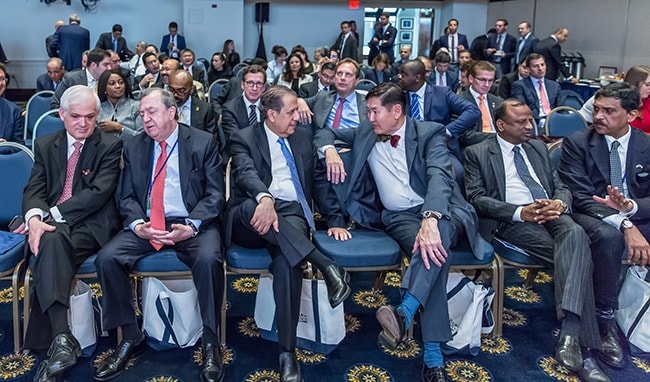
The winners of this year’s awards for the best banks in the world have successfully combined human expertise with technology to deliver positive customer experiences. These banks have loyal customers at both corporate and consumer levels. They have discovered profitable business models in a rapidly changing world.
| GLOBAL BEST BANKS 2017 | |
|---|---|
| Best Bank In The World | ING |
| Best Corporate Bank | Bank of America |
| Best Consumer Bank | Royal Bank of Canada |
| Best Emerging Markets Bank | Industrial and Commercial Bank of China |
| Best Frontier Markets Bank | Citi |
| Best Derivatives Bank | Societe Generale |
| Best Subcustody Bank | Standard Chartered Bank |
| Best Global Custodian | Northern Trust |
| Best Islamic Financial Institution | Maybank Islamic |
| Best Investment Bank | UBS |
| Best Cash Management Bank | Citi |
| Best Trade Finance Bank | BNP Paribas |
| Best Supply Chain Finance Bank | Citi |
| Best Foreign Exchange Bank | UBS |
| Best Pension Manager | J.P. Morgan Asset Management |
Corporate treasurers, as well as consumers, expect their banking transactions to be smooth and seamless, anytime and anywhere. To provide the solutions demanded by their customers, banks are no longer building all their technology in-house. Today’s large banks are far more disposed to consider offerings built by technology partners, or even hosted in private clouds, according to a recent report by Boston-based research firm Aite Group.
Meanwhile, the global banking landscape has shifted enormously over nearly a decade since the 2008 financial crisis. “The most dramatic change in the post-crisis global financial system has been in cross-border lending,” according to McKinsey Global Institute. Cross-border capital flows, including foreign direct investment, have shrunk by 65% since 2007.
| REGIONAL WINNERS | |
|---|---|
| North America | Bank of America |
| Western Europe | ING |
| Central & Eastern Europe | Raiffeisen Bank International |
| Latin America | Santander |
| Asia-Pacific | ICBC |
| The Middle East | Arab Bank |
| Africa | Standard Bank |
Large European banks—particularly those in the eurozone—are leading a retreat from foreign markets, while banks from Japan, China and Canada are increasing their foreign presence, new research from McKinsey says. China’s four largest banks have increased foreign lending more than tenfold, from $86 billion in 2007 to $1 trillion in 2016. “And China’s foreign bank lending could continue to grow: Foreign assets are only 9% of total bank assets in China, compared to 20% or more for banks in advanced economies,” according to The New Dynamics of Financial Globalization, a report by a team led by Susan Lund, economist and partner at McKinsey & Company.
Financial globalization is arguably healthier than it was pre- crisis, but banks and regulators must remain vigilant and continue to adapt, the McKinsey report says. “In the future, digital platforms, blockchain and machine learning may transform financial markets and create new channels for cross-border capital flows,” it adds. “These technologies are enabling faster, lower-cost and more efficient international transactions, and will further broaden participation in global finance to more firms, investors and countries.”
Justin Bisseker, European banks analyst at Schroders, says regulatory headwinds are abating, and may even turn into tailwinds, led by the US. “The majority of banks have now rebuilt capital to levels that incorporate a reasonable buffer against the unexpected,” he says. “However, the capacity of banks to continue to build capital—and thereby fund growth, pay dividends, absorb unanticipated shocks and accommodate regulator pressure—varies markedly.”
More than a quarter of European banks are at high risk of failure and need to find new business models, according to a report by Bain & Company. “European banks as a whole are running hard just to stand still,” says Bain partner João Soares, author of the report. “Sure, in light of the higher capital buffers they have erected, the banks might appear to be fairly resilient when viewed through recent stress tests by regulators,” he says. “But in reality, reflections on average for European banks are next to useless in a continent of many distinct markets.”
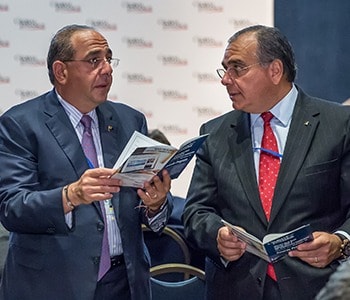
What may surprise people, Soares says, is the number of UK and German banks, including names that used to be references for good health, struggling to find a viable business model. Nevertheless, a select group of banks that are performing well on a range of indicators have been increasing their lead over persistent laggards, he adds.
In the US, the banking system appears quite healthy. The number of problem banks fell to 105 in the second quarter of 2017, from 112 in the previous quarter and a peak of 888 in the second quarter of 2011, according to the Federal Deposit Insurance Corporation. Revenue and net income growth were both strong in the second quarter of this year as margins improved and profitability reached a post-crisis high, says FDIC chairman Martin Gruenberg.
“The interest rate environment and competitive lending conditions continue to pose challenges for many institutions,” Gruenberg says. “Some banks have responded to this environment by reaching for yield through higher-risk and longer-term assets. The industry must manage interest rate risk, liquidity risk and credit risk carefully to remain on a long-run, sustainable growth path,” he adds.
Meanwhile, large US banks have piled back into derivatives contracts that are so large and complex that they could threaten the financial system once again. The Federal Reserve Board in September approved a rule to keep derivatives contracts from being canceled immediately when financial institutions fail, as happened in 2008 following the bankruptcy of Lehman Brothers. “The financial crisis showed that when a large financial institution gets into trouble, the failure can destabilize other firms and the broader financial system,” Fed chair Janet Yellen said in a statement. The rule is designed to head off the type of “asset fire sales that can consume many firms,” she said.
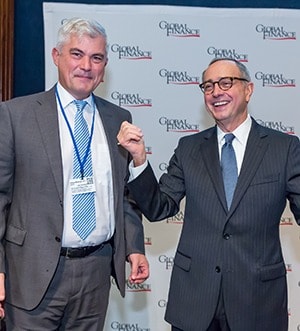
The rule, which requires global systemically important banks to amend language in common financial contracts, will take effect in 2019. The rule also requires the US arms of major foreign banks to amend language in financial contracts so that they cannot be immediately canceled.
Global bank rating trends were sharply negative in the first half of 2017, with 71 downgrades and 21 upgrades, according to Fitch Ratings. “More than half of the downgrades were related to our reassessment of sovereign credit strength,” Fitch said. Emerging markets dominated the issuer default ratings, with 57 downgrades and eight upgrades.
With this survey, Global Finance recognizes the banks that are best placed to help their clients successfully navigate a world in flux. The listing includes the best bank in the world, the best global corporate bank, the best consumer bank and the best banks worldwide for emerging markets, frontier markets, derivatives, subcustody services and pension management, which are being announced here for the first time. It also includes previously announced awards for Islamic finance, global custody, investment banking, cash management, trade finance, supply-chain finance and foreign exchange.
Winners were selected based on performance over the past year and other criteria, including reputation and management experience. Global Finance made the selections after extensive consultations with corporate financial executives, analysts and bankers throughout the world.
| GLOBAL WINNERS |
|---|
BEST BANK IN THE WORLD
ING
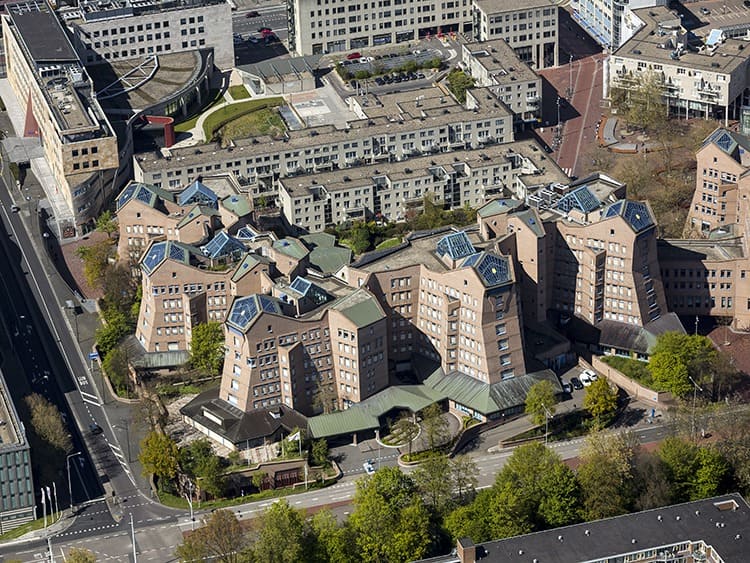
This is the first time Global Finance has given an award for “Best Bank in the World.” The choice of a European bank recognizes the fact that banks on the Continent have made notable improvements this year. ING was our choice of Best Bank in Western Europe for a fourth year in a row in 2017.
The banking industry worldwide is undergoing a massive transformation as the result of new technology and changing customer behavior. ING has been ahead of the curve in adopting digital technology and a culture of innovation. Partnering with 65 fintech companies, ING has focused on improving the customer experience. It is the Bank of the Future, with a clearly defined goal of converging toward a single digital banking platform that is globally scalable.
ING is the type of bank that Global Finance’s corporate readers can rely on to meet all of their transaction banking needs in the global marketplace. From payments and cash management to trade finance services and working capital, ING offers customized, integrated solutions incorporating the latest innovations to improve safety and efficiency.
Meanwhile, Amsterdam is an increasingly important financial center in the post-Brexit world. ING is an exemplary bank with high standards of ethical behavior. Under Dutch banking rules enacted in April 2015, all ING employees in the Netherlands take the “Banker’s Oath,” vowing to put customers first and help them succeed.
ING is a strong institution with a solid capital buffer. It has a strong base in Europe and operates in 40 countries around the world. We have watched the bank attract millions of new customers in recent years with its successful and sustainable business model.
—Ralph Hamers, CEO
www.ing.com
Read: Q&A With ING CEO
BEST CORPORATE BANK
Bank of America
Bank of America has the leading US market penetration for large corporate banking, cash management and trade finance, according to Greenwich Associates. The bank has relationships with 80% of the Global Fortune 500, and 96% of the US Fortune 1,000 companies.
The bank’s global business, serving commercial customers, generated earnings of $5.7 billion last year, followed by global markets, with $3.8 billion, the highest in five years for that category. Meanwhile, all of the bank’s businesses are operating at good efficiency levels and are producing returns above the firm’s cost of capital.
In addition to a wide range of lending and other solutions, BofA has one of the world’s top-tier investment banks, ranked third globally in investment banking fees last year. The bank is also one of the largest lenders to midsize companies and to small businesses. It has a broad array of capabilities to support businesses that are driving the real economy in the US and around the world.
—Brian Moynihan, chairman and CEO
www.bankofamerica.com
BEST CONSUMER BANK
Royal Bank of Canada
Royal Bank of Canada, the largest bank in Canada and one of the largest in the world, is keeping its retail banking clients happy with a focus on innovation. “Innovation is core to RBC, and we continue to invest in building a digitally enabled relationship bank to better serve our clients while delivering sustainable earnings growth,” says Dave McKay, president and CEO.
RBC recently announced the pilot launch of two artificial intelligence-based digital services that offer insights about a client’s financials and a fully automated savings solution that uses predictive technology to identify money in a client’s cash flow that can be automatically saved.
For the second straight year, RBC ranked highest among Canada’s big banks in terms of retail banking satisfaction, according to J.D. Power. The Toronto-based bank performed well in all seven factors considered: product, self-service, personal service, facilities, communication, financial advisory and problem resolution. RBC also led in J.D. Power’s inaugural app satisfaction study, which was based on responses from more than 1,600 retail bank customers throughout Canada. Success in retail banking requires a multichannel approach, according to J.D. Power. RBC’s distribution model includes ATMs, call centers and online and mobile channels, along with the physical branch network. In addition to Canada, RBC has operations in 35 other countries, including 17 in the Caribbean.
—Dave McKay, president and CEO
www.rbc.com
BEST EMERGING-MARKETS BANK
Industrial and Commercial Bank of China
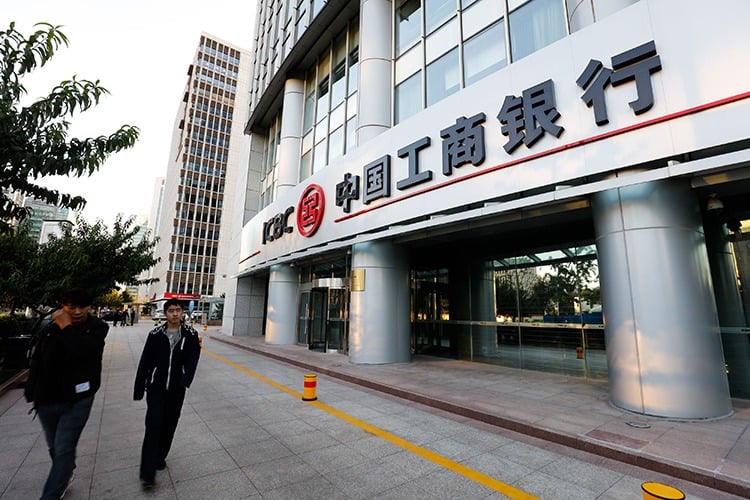
ICBC, the largest bank in the world, earned $23.3 billion in the first half of 2017, an increase of 2% from the same period of last year. While its lending margins widened and net interest income rose 7%, the bank reported a 6.2% decline in net fee and commission income. ICBC said the decline was mainly because it actively reduced fees and offered discounts. Despite China’s liquidity squeeze, ICBC realized a $182 billion increase in deposits.
ICBC is the leading investment bank in China and the biggest domestic bond arranger. It is also the largest retail bank and the largest issuer of credit cards in China, as well as the largest private bank, the largest custodian bank, the largest electronic bank, the largest asset management bank and the largest settlement bank. In its latest earnings report, ICBC said it continues to strengthen risk prevention and control, with its overall asset quality showing signs of improvement. Its nonperforming loan ratio dropped to 1.57% on June 30 from 1.62% at the end of last year.
—Yi Huiman, chairman
www.icbc.com.cn
BEST FRONTIER-MARKETS BANK
Citi
Citi does business in more than 160 countries and jurisdictions, with a significant on-the-ground presence in 98 of them, making it the world’s most global bank. In Vietnam, for example, Citi is the leading foreign bank, with branches in Hanoi and Ho Chi Minh City offering a full range of banking services. In April 2016, Citi advised Central Group of Companies on its $1.1 billion acquisition of hypermarket chain Big C Vietnam. All told, Citi advised clients on 11 M&A transactions last year that were valued at $6.4 billion—more than any other bank in frontier markets.
In Nigeria, Citi helped arrange a $1.1 billion sovereign bond issue in February that was heavily oversubscribed. Citi Inclusive Finance also provides loans to microfinance institutions operating in frontier and emerging markets around the world.
—Michael Corbat, CEO
www.citi.com
BEST DERIVATIVES BANK
Societe Generale
Societe Generale has been designing derivatives for its clients for more than 30 years. Earlier this year, it was awarded Best Bank for Equity Derivatives and Best Bank for Interest-Rate Derivatives by Global Finance. Dealers at Societe Generale receive high marks from corporate clients for a faster-than-average response time. The Paris-based bank stays committed to its clients, enabling it to get more repeat business from them. Societe Generale creates bespoke instruments with nonstandard tenors when special needs arise. It is able to warehouse risk for a client until it can find a new buyer to take it on.
Societe Generale restructured its global markets division in 2015, knocking down silos and making it easier to offer cross-asset derivatives. It evolved from a leader in equities derivatives to become a full-service derivatives provider. Interest rate derivatives were the biggest contributor to the bank’s revenue gains in fixed income, currencies and commodities revenue last year.
—Frédéric Oudéa, CEO
www.societegenerale.com
BEST SUBCUSTODY BANK
Standard Chartered Bank
Standard Chartered offers direct custody access to 40 markets in Asia, Africa and the Middle East, giving it the largest proprietary network in these regions, which account for 90% of its revenue. The bank has implemented a new integrated custody platform in 33 of these markets. The platform’s “single touch” custody model provides investors with more relevant real-time information about their holdings, as well as accounting and workflow solutions.
The system enables Standard Chartered to integrate the benefits of local and global approaches and offer seamless services, including straight-through processing from trade to settlement. It also offers compliance with evolving market practices, as well as foreign exchange services.
—Margaret Harwood-Jones, global head of securities services
www.sc.com
BEST GLOBAL CUSTODIAN
Northern Trust
For the second year in a row, Northern Trust has won the Best Global Custodian award. With $9.3 trillion in assets under custody and administration, the Chicago-based bank sees opportunities in rising interest rates. “We see higher nominal short-term interest rates impacting the business in a positive way, because as rates start to increase, there are opportunities to invest the cash collateral at higher rates while the liability side will take longer to reset,” says George Trapp, head of Northern Trust’s securities lending client relations for North America. “This provides additional revenue for clients,” he says.
Trapp also notes that interest-rate hikes will increase demand for securities lending activity overall, leading to higher fees for loans—benefiting both Northern Trust and its clients. Trapp says the bank already has had to adapt to a regulatory environment that is stricter on borrowers and lending agents. “If regulations are revised to better align the risk with the required capital, or repealed altogether, then it should increase the loan activity and benefit borrowers and lenders in the securities-finance industry,” Trapp says.
—Frederick Waddell, chairman and CEO
www.northerntrust.com
BEST ISLAMIC FINANCIAL INSTITUTION
Maybank Islamic
Maybank Islamic, the largest Islamic bank in ASEAN and one of the biggest globally, won this award due to its strong financial and operating performance and its proactive approach to developing products. Maybank Islamic is the Islamic banking arm of the Maybank Group, the Kuala Lumpur–based bank. The bank’s market share of global Islamic finance assets is around 5%, up from 1.3% in 2009. In 2016, Maybank Islamic’s gross financing recorded growth of 14% in deposits, and funding was up by 12%. Total income grew by 12% to $819 million. The bank is strongly capitalized, with a Basel III ratio above 18%.
The bank launched its Mudarabah Investment Account in July 2015, which grew to 31.5 billion ringgit ($7.2 billion) at the end of 2015. It was one of six Islamic banks to launch the first bank-intermediated fintech platform facilitating direct investment. Regionally, Maybank Islamic is expanding. Its focus in Singapore is to position operations as the funding center to support regional growth of Islamic banking. In Indonesia, the shariah unit of Maybank Indonesia recorded a profit before tax credit of 433 billion rupiah ($32.5 million), up 62% from 2015, with financing rising by 61% and deposits up by 71% to 11 trillion rupiah.
—Mohamed Rafique Merican, CEO
www.maybank.com
BEST INVESTMENT BANK
UBS
The past year was a disappointing one for most investment banks, although UBS had a strong fourth quarter. UBS displayed a superlative command over capital markets in the M&A arena, despite increasingly volatile asset prices. In the United States, the venerable Swiss bank was quick to spot an opportunity to advise regional US banks on mergers and acquisitions to increase their capitalization. The bank also showed a knack for orchestrating deals in cash. In one example, UBS served as the lead financial advisor to EverBank of Jacksonville, Florida, on its $2.5 billion sale to Teachers Insurance and Annuity Association (TIAA) in the largest all-cash M&A transaction since 2009, according to UBS. “The M&A market is white-hot at the moment,” says Piero Novelli, UBS global head of advisory. “We are putting extra focus on our most important clients and ensuring we give the greatest support to our most effective bankers.”
In global equity capital markets, UBS stood out last year among the bookrunners of several of the world’s most lucrative initial public offerings (IPOs). It got in on some of the hottest deals in Asia-Pacific, the only region in the world that saw solid growth in capital markets last year. UBS was bookrunner for the $7.4 billion IPO of Postal Savings Bank of China in September 2016, in the world’s biggest IPO since Alibaba raised $25 billion in 2014.
—Andrea Orcel, president, Investment Bank
www.ubs.com
BEST CASH MANAGEMENT BANK
Citi
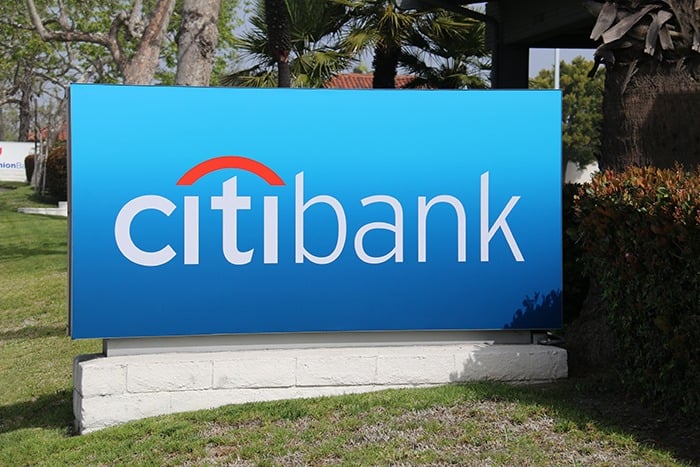
Citi is leveraging Big Data and analytics to give corporate treasury customers enhanced levels of reporting and insights to drive better-informed decisions about cash, liquidity and investments. With regulations like Basel III putting greater pressure on banks’ ability to lend and accept short-term overnight deposits, corporations are more reliant than ever before on analytics, real-time transaction reporting and visibility of their cash balances on a global basis.
Every bank may claim to be investing in innovation, but some do considerably more than others. Citi not only consistently demonstrates commitment to upgrading its banking platforms and connectivity with customers, it is also the largest bank investor in fintech companies—an honor it shares with Banco Santander—according to KPMG and CB Insights’ “The Pulse of Fintech,” Q3 2016. Few banks can rival Citi’s reach, scale and entrepreneurship when it comes to developing solutions like TreasuryVision Liquidity Manager and the TreasuryVision Analytics toolkit.
—Naveed Sultan, global head of Treasury and Trade Solutions
www.citi.com
BEST TRADE FINANCE BANK
BNP Paribas
Partly due to the cost and complexity of complying with anti-money-laundering and know-your-customer rules, there is a worsening global shortage of trade finance, according to the Paris-based International Chamber of Commerce. The shortage is hitting small and midsize enterprises hardest, particularly those in emerging markets.
With a global network of more than 100 trade centers in 60 of the 74 countries where it operates, BNP Paribas provides a wide range of trade-finance solutions, including structured finance and customized supply-chain management, as well as Web-based platforms. The French bank works with more than 40,000 corporations across all industries worldwide and handles more than 14 million trade transactions a year.
BNP Paribas also offers databases and services to help corporate clients prospect internationally for trade partners. The bank has initiated a groupwide drive to digitize all of its activities and has been investigating the use of blockchain technology and distributed ledgers since 2011.
—Jean-Laurent Bonnafé, CEO
www.cib.bnpparibas.com
BEST SUPPLY CHAIN FINANCE BANK
Citi
Supply-chain finance (SCF) remains the province of only a handful of large global trade banks, with some challenger banks emerging in the developing regions of the world. A consistent winner in this category, Citi boasts one of the most comprehensive SCF offerings of the global banks and has an unrivaled global presence in more than 70 markets across North America, Latin America, Asia, Europe, the Middle East and Africa.
SCF is part of the bank’s Treasury and Trade Solutions group, which saw continued growth in transaction volumes in 2016. Recent enhancements to its solutions include an automated, Web-based supplier-acquisition platform to streamline the supplier onboarding process. Clients looking to execute global cross-border SCF programs can rely on Citi’s local and regional market expertise. In addition to financing SCF programs, Citi’s Trade Risk Distribution team distributes SCF assets to a network of investors globally, a capability it is able to leverage to support the ongoing growth of a client’s SCF program.
—Naveed Sultan, global head of TTS
www.citi.com
BEST FOREIGN EXCHANGE BANK
UBS
Swiss bank UBS has climbed to the top of the foreign-exchange world, thanks to its high level of customer support and innovative trading technology. The UBS Neo FX platform is efficient and easily customized for clients. Satisfied customers are handing UBS significant market-share gains. The bank tied for first place for global forex trading quality and market share in Greenwich Associates’ 2016 survey, which was based on interviews with nearly 3,000 corporate and financial users of forex services around the world.
With offices in 54 countries, UBS has global reach and expertise in FX derivatives. The bank has fine-tuned its business model for the post-crisis market environment and is firing on all cylinders. The bank’s second-quarter 2017 earnings were up 14% from the same period a year earlier.
—Sergio Ermotti, CEO
www.ubs.com
BEST PENSION MANAGER
J.P. Morgan Asset Management
One of the largest asset-management organizations in the world, with $2.2 trillion under its wings, J.P. Morgan has done a deep dive into the livelier trends in the pension and institutional fields. While multiasset portfolios have long been a staple for the firm, multiasset and alternative strategies are now its largest categories—including investment strategies that seek to outperform an explicit benchmark over a market cycle and outcome-oriented approaches addressing specific challenges, such as risk mitigation, a return goal or a need to outperform liabilities. This also speaks to large pension investors’ growing desire for a tailored approach to their portfolios, as risk-mitigation and more explicit actuarial goals become priorities.
In 2014, investment solutions—tailored investment strategies that cut across investment styles and asset classes—totaled $9 trillion of institutional assets under management, or 13% of the global total, according to Boston Consulting Group. This was up from $2 trillion, or 6%, in 2003. That same year, J.P. Morgan created a global unit explicitly devoted to investment solutions. Rapid growth then followed.
—Mary Callahan Erdoes, CEO
www.jpmorganassetmanagement.coM
| REGIONAL WINNERS |
|---|
BEST BANK IN NORTH AMERICA
Bank of America
Bank of America turned in another solid earnings report in the second quarter, with all of its businesses delivering strong results and several setting records. Net income increased 10% to $5.3 billion. Revenue, net of interest expense, rose 7% to $22.8 billion. Net charge-offs declined 8% to $908 million.
“We achieved our 60% efficiency-ratio target, and we continued to manage credit risk carefully in line with responsible growth,” says Brian Moynihan, chairman and CEO. “This supports our plan to return $17 billion in capital during the next four quarters, including a 60% increase in the quarterly common dividend.”
Warren Buffett’s Berkshire Hathaway exercised warrants in August to acquire 700 million common shares of Bank of America, making Berkshire the bank’s largest shareholder. Bank of America could see its profitability continue to grow as interest rates rise. The strongest growth so far this year has come from the bank’s global banking business, which increased earnings by 36% on record revenue of $10 billion.
—Brian Moynihan, chairman and CEO
www.bankofamerica.com
BEST BANK IN WESTERN EUROPE
ING
Fast-changing consumer behavior and technology-based solutions have opened up opportunities for banks that have been ahead of the curve in adopting digital technology to meet customers’ needs, like our regional winner for Western Europe, ING. “To foster growth and maintain our standing as a leading European bank, we strive to keep getting better every day,” says CEO Ralph Hamers. “Through the merger of two large banks in the Netherlands and the target operating model of our wholesale bank, we have gained experience in large transformational projects. I am convinced that our recently announced investment program and intention to converge toward a single digital-banking platform are necessary steps to enable ING to further improve the customer experience, further grow primary customers and lending, and increase efficiency.”
As a result, ING has attracted more than 3 million new customers since 2014 and last year enjoyed the top Net Promoter Score, a measure of customer satisfaction, in seven of its 13 retail markets. In the second quarter of 2017, ING’s earnings rose 5.9% to $1.6 billion. Net core lending increased by $7.6 billion. Sustainalytics ranked ING as the world’s most sustainable bank out of 395 banks measured in 2016.
—Ralph Hamers, CEO
www.ing.com
BEST BANK IN CENTRAL & EASTERN EUROPE
Raiffeisen Bank International
Banks operating in many CEE countries have faced significant headwinds. The low interest rate environment has narrowed lending margins, while regulatory pressures and costs have increased, and some governments have brought in harsh new taxes. Probably no bank is more aware of this than Raiffeisen Bank International (RBI), our CEE regional winner, which is active in more countries across the region than any other bank. Since the financial crisis, it has faced some serious challenges, but it surmounted them through what CEO Johann Strobl calls “a comprehensive transformation program.” RBI “optimized its group structure, increased its transparency and profitability, reduced its complexity, improved its asset quality and strengthened its capital ratios,” Strobl says.
The focus in the first half of 2017 was on some positive developments relating to impairment losses. Net provisioning for such losses was down 81%. The good overall macroeconomic situation also had a positive impact on nonperforming loans. The NPL ratio was 7.3% at midyear, 1.3 percentage points lower than at the beginning of the year. Consolidated net profit rose 149% to $699 million.
—Johann Strobl, chairman and CEO
www.rbinternational.com
BEST BANK IN LATIN AMERICA
Santander
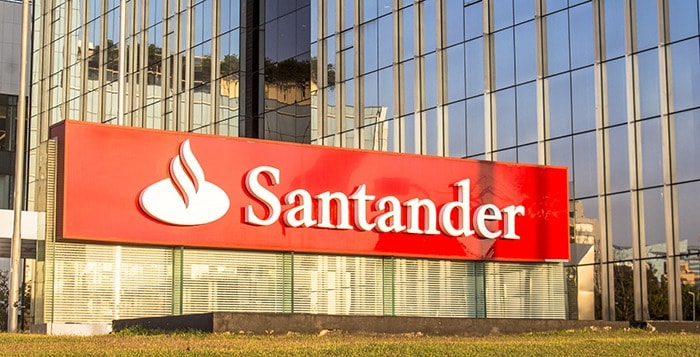
Santander, the Spanish bank with operations throughout the region and this year’s regional winner in Latin America, believes that one of the keys to its success in the region has been technology investments, which contributed $3.6 billion in attributable profit to Santander in 2016, for a 6.1% year-over-year increase (an 18.6% increase discounting currency adjustments). Brazil alone contributed 21% of the group’s profits. In Brazil, “loyal customers increased by 500,000 with digital advances (including the launch of biometrics) and product innovations helping improve the customer proposition,” Santander said in its 2016 annual report. “The change in business mix carried out in recent years helped control provisions and credit quality.”
With Latin growth poised to accelerate, Santander is positioned to benefit from improved growth and stability, says Antonio Cortina, the bank’s deputy director of economic research. “Since last summer, the economy in the region has been gradually improving,” he says. “Growth will reach 1.5% in 2017 and 3% in 2018. The bulk of the improvement will be in Brazil and Argentina.”
—José Antonio Álvarez, CEO
www.santander.com
BEST BANK IN ASIA-PACIFIC
Industrial and Commercial Bank of China
ICBC is a behemoth of a bank, engaging in just about every activity one expects from a universal bank, and active not only across the region but around the globe. Despite the substantial risks inherent in the rapidly shifting Chinese financial landscape and the potential for much, much worse results, profits were up 2% in the first half of 2017.
In the cross-border field, ICBC was the biggest arranger of syndicated loans in Asia (outside Australia and Japan) in 2016, according to data from Thomson Reuters. Retail loans grew rapidly on ICBC’s balance sheet last year, with domestic residential mortgage lending up 28.8%. Meanwhile, loans to small and micro enterprises grew faster than all other types of loans in the same period. The bank is actively scaling back from sectors suffering from overcapacity and high leverage, but continues to enjoy a relatively competitive nonperforming-loan ratio of just 1.5%, below the Chinese commercial bank average of 1.7%. ICBC is also upgrading its financial technology: It rolled out a Big Data strategy last year, while launching nearly 1,000 projects to accelerate integrated innovation in technology and business.
—Yi Huiman, chairman
www.icbc.com.cn
BEST BANK IN THE MIDDLE EAST
Arab Bank
Jordan-based Arab Bank has the most extensive banking network in the Arab world and uses this advantage to promote regional economic growth. The bank helps international companies enter Middle East markets, while supporting local companies in the region and globally. Arab Bank also produced 20% earnings growth last year, while maintaining its prudent risk standards.
Arab Bank is a genuinely regional financial institution, rather than a local bank with a regional presence. It has been on the ground in the Middle East since 1930, and knows local markets. The bank receives 75% of its revenue from outside of its home country. It maintains a global network of more than 600 branches in 28 countries, but it is in the Middle East where its serves niche markets better than any other bank. Its global network of treasury centers provides corporations with a wide range of products, including cash management, foreign exchange and trade finance. The bank is a market maker in MENA currencies and offers hedging solutions such as swaps, options and hybrid instruments, and capital market services.
—Nemeh Sabbagh, CEO
www.arabbank.com
BEST BANK IN AFRICA
Standard Bank
Among the banks most likely to benefit from renewed growth in Africa is Standard Bank. The South African bank has made strides since the early 1990s in building a sophisticated franchise on the continent. Our regional winner, Standard Bank is now active in 20 African countries and by far the continent’s biggest bank by assets. “We are primarily focused on organic growth in market share, looking particularly at growing with Africa’s emerging entrepreneurs,” says Sim Tshabalala, group chief executive of Standard Bank. “We are also supporting the expansion of African and multinational corporations in Africa. In addition, we are facilitating China-Africa trade and investment with our 20% shareholder, Industrial and Commercial Bank of China.”
Under its Stanbic Bank brand, the company was awarded a full banking license in Ivory Coast last year. It has identified francophone West Africa as a key growth opportunity, due to the economic integration and stability offered by the West African Economic and Monetary Union, whose eight member nations use the CFA franc, which is pegged to the euro.
—Sim Tshabalala, CEO
www.standardbank.com
Visit Best Banks 2017-Part 1 for more details on regional and country award winners.
| COUNTRY WINNERS | |
|---|---|
| NORTH AMERICA | |
| Bermuda | Butterfield Bank |
| Canada | Royal Bank of Canada |
| US | Bank of America |
| WESTERN EUROPE | |
| Andorra | Credit Andorra |
| Austria | BAWAG PSK |
| Belgium | ING Belgium |
| Cyprus | Bank of Cyprus |
| Denmark | Danske Bank |
| Finland | OP Financial Group |
| France | Credit Mutuel |
| Germany | DZ Bank |
| Greece | Eurobank Ergasias |
| Iceland | Landsbankinn |
| Ireland | Bank of Ireland |
| Italy | Intesa Sanpaolo |
| Liechtenstein | Liechtensteinische Landesbank |
| Luxembourg | Banque Internationale a Luxembourg |
| Malta | HSBC Malta |
| Monaco | CFM Indosuez Wealth |
| Netherlands | ABN Amro Bank |
| Norway | Nordea |
| Portugal | Banco Santander Totta |
| Spain | CaixaBank |
| Sweden | Swedbank |
| Switzerland | UBS |
| United Kingdom | Lloyds Bank |
| CENTRAL & EASTERN EUROPE | |
| Albania | Banka Kombetare Tregtare |
| Belarus | Belarusbank |
| Bosnia & Herzegovina | Raiffeisen Bank dd Bosna i Hercegovina |
| Bulgaria | UniCredit Bulbank |
| Croatia | Privredna banka Zagreb |
| Czech Republic | Ceska sporitelna |
| Estonia | Swedbank Estonia |
| Georgia | TBC Georgia |
| Hungary | OTP Bank |
| Kosovo | TEB |
| Latvia | SEB banka Latvia |
| Lithuania | Siauliu bankas |
| Macedonia | Ohridska Banka Societe Generale |
| Moldova | Moldova Agroindbank |
| Poland | mBank |
| Romania | Banca Transilvania |
| Russia | Sberbank |
| Serbia | Raiffeisen Bank Beograd |
| Slovakia | VUB Group |
| Slovenia | SKB Banka |
| Turkey | Akbank |
| Ukraine | Raiffeisen Bank Aval |
| LATIN AMERICA | |
| Argentina | Banco Macro |
| Bahamas | Scotiabank Bahamas |
| Barbados | Scotiabank Barbados |
| Belize | Belize Bank |
| Bolivia | Banco Mercantil Santa Cruz |
| Brazil | Banco do Brazil |
| Chile | Banco de Chile |
| Colombia | Banco de Bogota |
| Costa Rica | Scotiabank Costa Rica |
| Dominican Republic | Banco Popular Dominicano |
| Ecuador | Produbanco |
| El Salvador | Banco Agricola |
| Guatemala | Banco Agromercantil |
| Honduras | Banco Ficohsa |
| Jamaica | National Commercial Bank of Jamaica |
| Mexico | Banorte |
| Nicaragua | Banco Lafise Bancentro |
| Panama | Banistmo |
| Paraguay | BBVA Paraguay |
| Peru | Banco de Credito del Peru |
| Puerto Rico | Banco Popular de Puerto Rico |
| Trinidad & Tobago | Republic Bank |
| Turks & Caicos | Scotiabank Turks & Caicos |
| Uruguay | Banco Santander Uruguay |
| US Virgin Islands | Scotiabank US Virgin Islands |
| Venezuela | BBVA Provincial |
| ASIA-PACIFIC | |
| Afghanistan | Ghazanfar Bank |
| Armenia | Ameriabank |
| Australia | Commonwealth Bank |
| Azerbaijan | PASHA Bank |
| Bangladesh | The City Bank |
| Brunei Darussalam | Baiduri Bank |
| Cambodia | ABA Bank |
| China | ICBC |
| Hong Kong | The Bank of East Asia |
| India | State Bank of India |
| Indonesia | Bank Rakyat Indonesia |
| Japan | Mizuho |
| Kazakhstan | JSC Halyk Bank |
| Kyrgyzstan | Kyrgyz Investment and Credit Bank |
| Macau | ICBC Macau |
| Malaysia | Public Bank Berhad |
| Mongolia | XacBank |
| Myanmar | Myanma Economic Bank |
| Nepal | Rastriya Banijya Bank |
| New Zealand | Westpac New Zealand |
| Pakistan | Meezan Bank |
| Philippines | BDO |
| Singapore | DBS |
| South Korea | Shinhan Bank |
| Sri Lanka | Commercial Bank of Ceylon |
| Taiwan | E. SUN Commercial Bank |
| Tajikistan | International Bank of Tajikistan |
| Thailand | Siam Commercial Bank |
| Uzbekistan | Asia Alliance Bank |
| Vietnam | Maritime Bank |
| MIDDLE EAST | |
| Bahrain | Ahli United Bank |
| Egypt | Commercial International Bank |
| Iraq | Bank of Baghdad |
| Israel | Bank Hapoalim |
| Jordan | Arab Bank |
| Kuwait | National Bank of Kuwait |
| Lebanon | Bank Audi |
| Oman | Bank Muscat |
| Palestine | Bank of Palestine |
| Qatar | Qatar National Bank |
| Saudi Arabia | Samba Financial Group |
| United Arab Emirates | Abu Dhabi Commercial Bank |
| Yemen | Arab Bank Yemen |
| AFRICA | |
| Algeria | Societe Generale Algeria |
| Angola | Banco Millennium Atlantico |
| Benin | Ecobank Benin |
| Botswana | Stanbic Bank Botswana |
| Burkina Faso | Ecobank Burkina Faso |
| Cameroon | Ecobank Cameroon |
| Côte d’Ivoire | Societe Generale de Banques en Côte d’Ivoire |
| DR Congo | Rawbank |
| Djibouti | BCIMR |
| Ethiopia | Commercial Bank of Ethiopia |
| Gambia | Ecobank Gambia |
| Ghana | GCB Bank |
| Guinea | Societe Generale de Banques en Guinee |
| Kenya | Equity Bank |
| Madagascar | Bank of Africa Madagascar |
| Malawi | Standard Bank Malawi |
| Mali | Ecobank Mali |
| Mauritius | Standard Bank Mauritius |
| Morocco | Attijariwafa Bank |
| Mozambique | Millennium bim |
| Namibia | Standard Bank Namibia |
| Nigeria | First Bank of Nigeria |
| Rwanda | I&M Bank Rwanda |
| Senegal | Societe Generale de Banques au Senegal |
| Sierra Leone | Zenith Bank |
| South Africa | Standard Bank |
| Tanzania | CRDB Bank |
| Togo | Ecobank Togo |
| Tunisia | Banque Internationale Arabe de Tunisie |
| Uganda | Ecobank Uganda |
| Zambia | Barclays |
| Zimbabwe | CBZ Bank |
